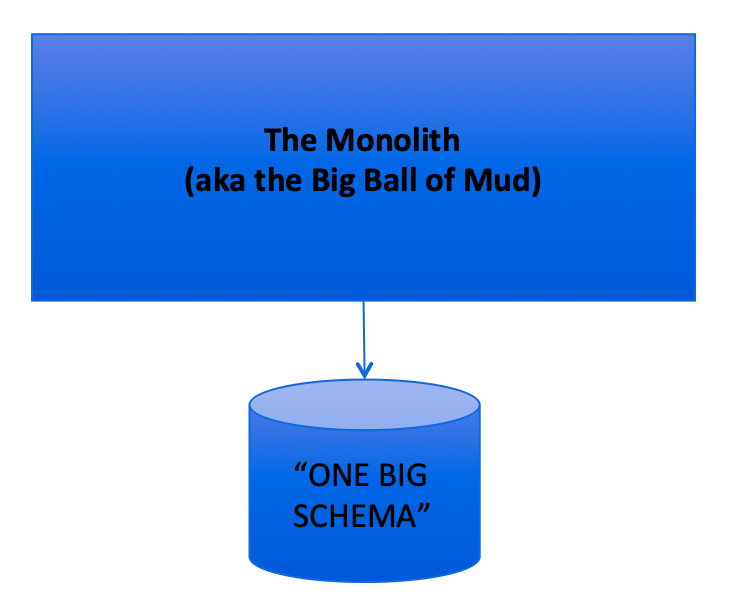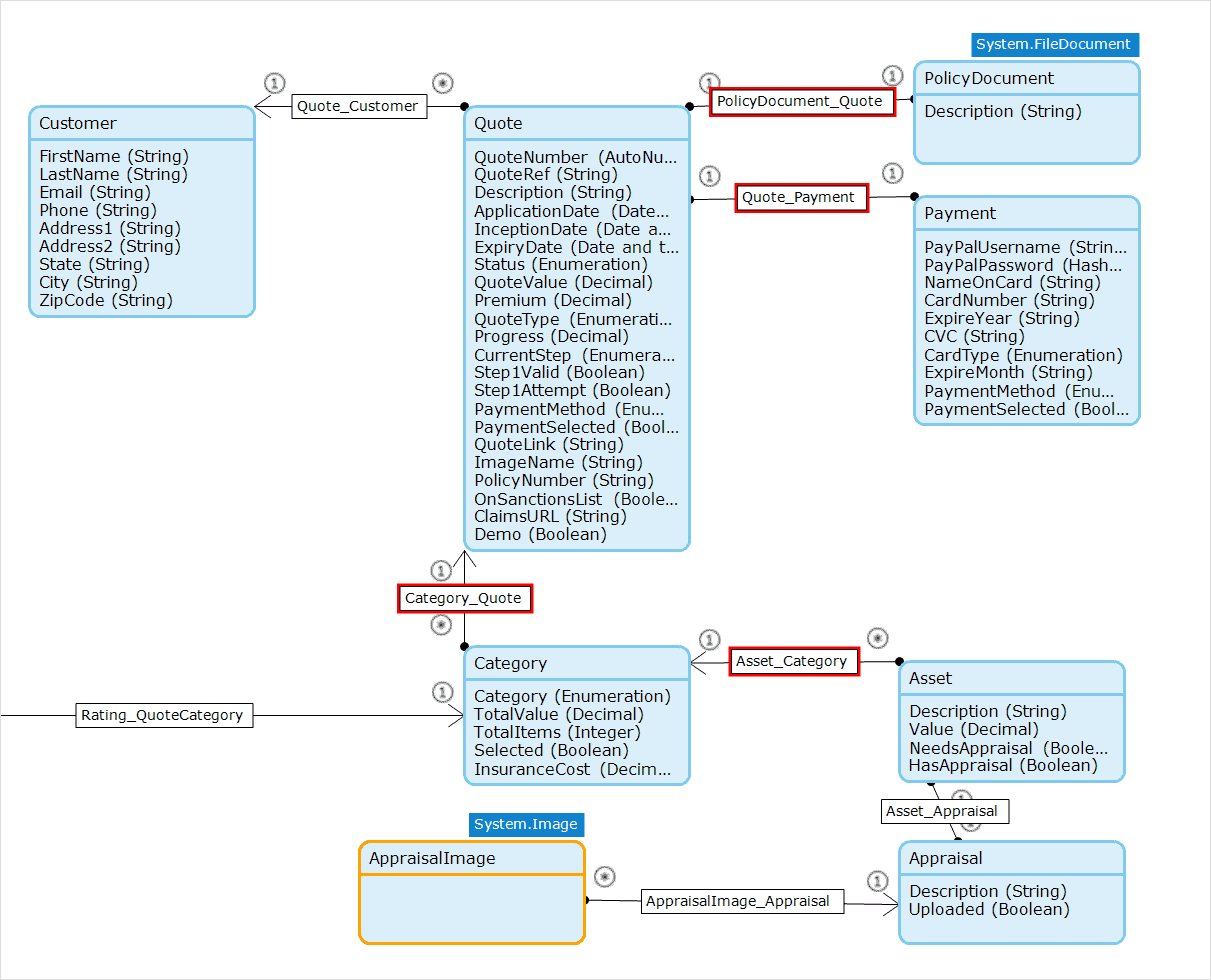Database Orm Vs Stored Procedures
With SQL Command Objects and the. ORMsObject-relational mapping are not mutually exclusive with Stored Procedures.

Breaking The Monolithic Database In Your Microservices Architecture Dzone Microservices
ORM vs Stored Procedures.

Database orm vs stored procedures. Having all access to the database performed via a stored procedure isolation layer allows database changes to be made without having to refactor application code. Stored procedures are not just a way to cram a. In particular stored procedures can be used as part of the general data management process.
Most ORM devs are not experts at advanced SQL and have no understandingexperience of this. A stored procedure is a series of SQL statements compiled and saved to the database. This also improves debugging and logging capabilities.
Stored procedures can be as simple or as complex as you like. On the side of the DBAs the arguments favored run time performance and security. Orm tools support stored procedure so you can put your data architects mind to rest there.
ORMs may generate unacceptable SQL in terms of performance and you may sometimes want to override that SQL with hand-crafted SQL. February 14 2020. Most ORMs generate Stored Procedures if you so choose.
When it comes to the development of the stored procedures I would try to get the dba to agree to some compromise. However one of the benefits of stored procedures is that they allow you to store complex scripts on the server. Which one to use My Social Links1.
Stored procedures often contain conditional programming. Most ORMs can utilize stored procedures. You may get some concessions if you are seen to be compromising and taking thier advice seriously.
The following procedure assumes that your Oracle stored procedure returns only a single result set. They are physically stored in the internal hidden Resource database and logically appear in the sys schema of every system- and user-defined database. As long as the stored proc layer provides the same result set and the call parameters remain the same the database structure can be changed without these changes affecting the application.
In my view ORM tools are great but plugging them directly to the underlying tables has security performance and manageability overheads. Stored procedures and triggers that are not part of the business logic may have a place within the database. I prefer to implement my Database code using ADONET or ORM depending on needs.
The bottom line is stored procedures using a DBMSs native SQL language can be orders of magnitude faster than ANY ORM generated SQL. This helps me centralize all my Database logic at one place. That does not mean I never use Stored.
So it the issue is not either or. Many of them argue for ORM and others are arguing for stored procedures. EF makes sense if you dont have a strong SQL skillset but it seems like more trouble than its worth for complex projects that leverage asynchronous javascript front ends that arent passing models through the pages controller method.
System procedures are included with SQL Server. Stored Procs vs. To create a DataWindow object using an Oracle stored procedure with a result set.
ORM Vs Stored Procedures. Honestly a stored procedure can be more vulnerable to SQL injection than an ORM. Its a bit of a simplification to say that the main conflict was between database administrators and application developers but these two camps are representative of the two opposing worldviews.
The ORM is an abstraction away from the underlying database technology. Using ORM tools with stored procedures has security performance and maintenance advantages over using ORM tools with direct access to tables. Some stored procedures use dynamic SQL commands exec someSqlCommand and this is very susceptible to SQL injection attacks.
However ORM approach is more maintainable. The interesting thing is that people with highly object orientation sense recommends ORM. The ORM is not the database engine no more than ADONET is the database engine when you use ADONET without EF being involved and using ADONET.
Writing your application in OO languages generally requires some sort of Object-Relational Mapping ORM. With an ORM no plain text SQL commands are executed string input is only passed via parameters not appended to a SQL command. 3 Stored procedures are faster than application SQL.
With stored procedures you get 100 control and arent burning time troubleshooting or trying to override defaults or save logic. One can also use ORMs Object Relational Mappers like Hibernate to prepare their data access strategy one can then extend it to make calls to the database stored procedure if so desired in certain situations have externalized SQL statements have dynamic SQL statements being prepared by the ORM etc. But i do feel that i have better SoC and less coupling between my domain and database.
Over the last decade of developing ASP NET applications using C and SQL Server I have found that using Stored Procs is the best way for querying the database. For the last few years many developers and architects are engage in a series of debates about ORM Vs Stored Procedures. When you throw literal values into the mix the optimizer is far less charitable and will treat each query like it has never seen it before and go about compiling a brand new execution plan for it.
In addition the msdb database also contains system stored procedures in the dbo schema that are used for scheduling alerts and jobs. I avoid to use Stored Procedures. Object-relational mapping refers to synchronization between two different representations of data.
Which is the best approach. An ORM is also an extra layer of code between the business logic layer and the data layer. Select the Stored Procedure icon and click OK.
While stored procedures are often considered to be the equivalent of assembly language for an RDBMS the perceived performance gain is not always met. What Is an Object-Relational Mapping ORM. When you write queries that take parameters whether its a stored procedure or dynamic SQL you get better plan re-use.
Select a presentation style on the DataWindow page of the New dialog box and click OK. More code more potential bugs and headaches. From one side there is a relational database where the data is represented in terms of tuples grouped into relations while in application we manipulate objects.

Choosing The Right Databases For Microservices By Kyle Gene Brown Ibm Garage Medium

Asp Net Mvc And Dapper Orm Crud Operation Using Sql Server Database In 2021 Sql Server Orm Software Engineer

Difference Between Ado Net And Linq To Sql Sql Online Tutorials Syntax

Data Storage Tools Persistable Non Persistable Objects Mendix
Posting Komentar untuk "Database Orm Vs Stored Procedures"